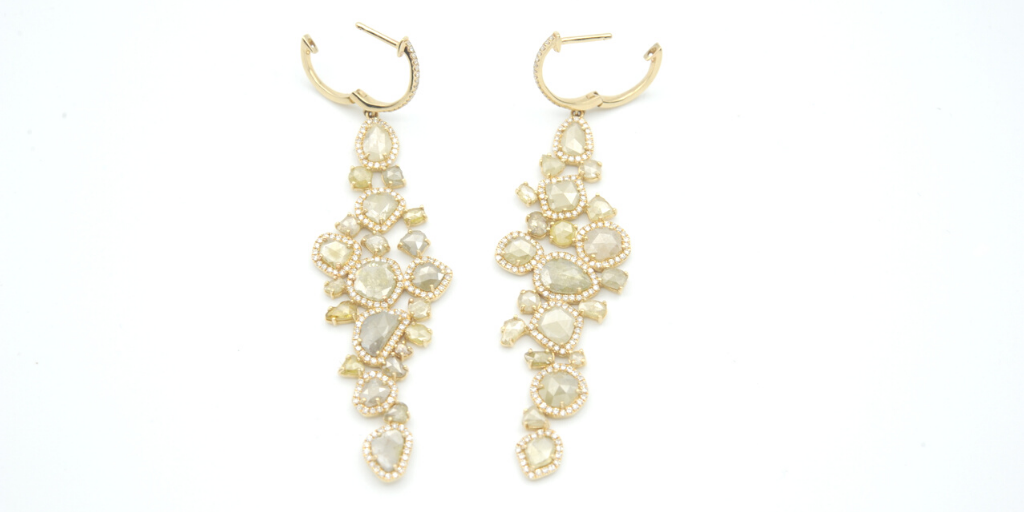Behind the Jewelry: What Does A Gemologist Do?
Written by Anna Currell
November 3, 2022
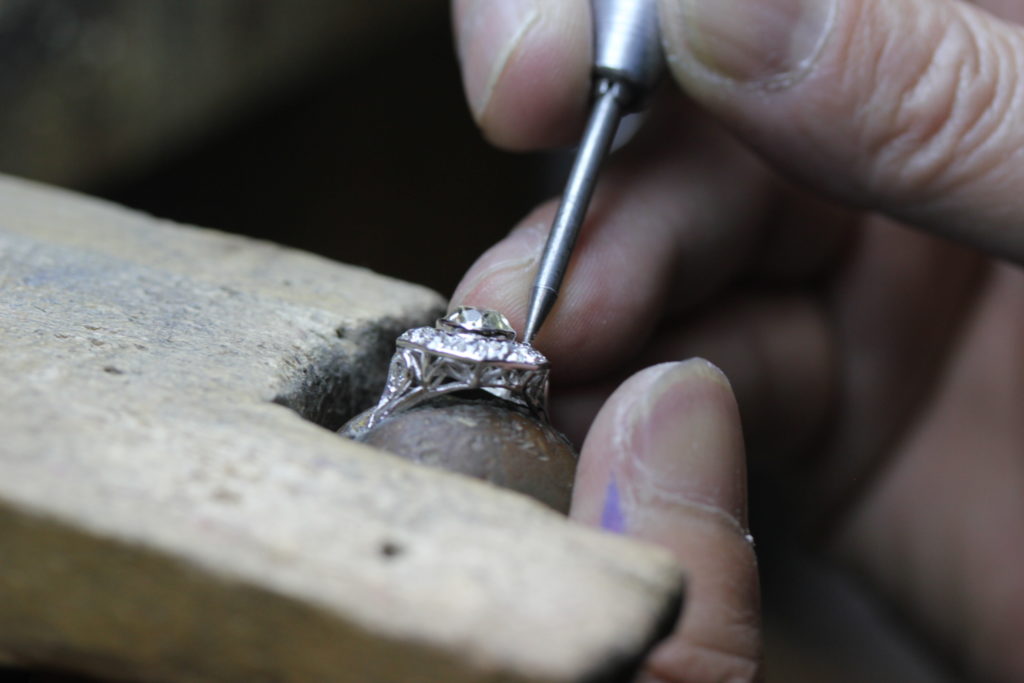
Gemologists are the experts behind the gems in the jewelry we wear, and they are found at almost every step of the jewelry process, from manufacturing facilities to retail jewelry stores. Gemstones have so many different qualities and properties, and gemologists study them all. In this article, we’ll look at what it takes to be a gemologist and explore how the experts apply their gemstone education to produce the world’s finest jewels.
What Is a Gemologist?
A gemologist is someone who studies gemstones. They study the attributes of each kind of gem and hold either a degree or a certificate in gemology. While every type of gem has its own specific qualities, gemologists are also interested in the characteristics of individual stones within a gem family. The precise cut, clarity, color, shape, and weight of a gem will determine its quality and value, and a gemologist is trained to understand how to identify each characteristic. This specialized knowledge is what makes gemologists so essential in every area of the jewelry industry.
What Do Gemologists Study?
Gemologists study all aspects of gemstones to gain a better understanding of where they came from and what they can be used for. Their skillset allows them to bring expert knowledge to jewelers, repair technicians, and anyone else who needs details about the stones used in jewelry in order to accomplish their own jobs.
Gemologists can complete their training at accredited jewelry institutions like the Gemological Institution of America (GIA), for example. While the specific curriculum depends on the courses a gemologist takes and the school they attend, generally gemologists will graduate with the following knowledge:
- The diamond grading system, otherwise known as the 4C’s of diamond quality: cut, color, clarity, and carat.
- The properties of colored stones and the color scale of diamonds. (Did you know diamonds range from totally colorless to slightly yellow?)
- The proper use and care of equipment, like special microscopes, to study gemstones.
- How to recognize the rarity of a gemstone.
- Understanding the mining process.
- Understanding gemstone treatments and enhancements.
- How gemstone value and the jewelry industry market impact each other.
Careers for Gemologists
There are many careers that gemologists can pursue to help jewelers, manufacturers, retailers, and customers interact with their jewelry responsibly and ethically. Here are some of the most popular career paths for gemologists:
Appraiser
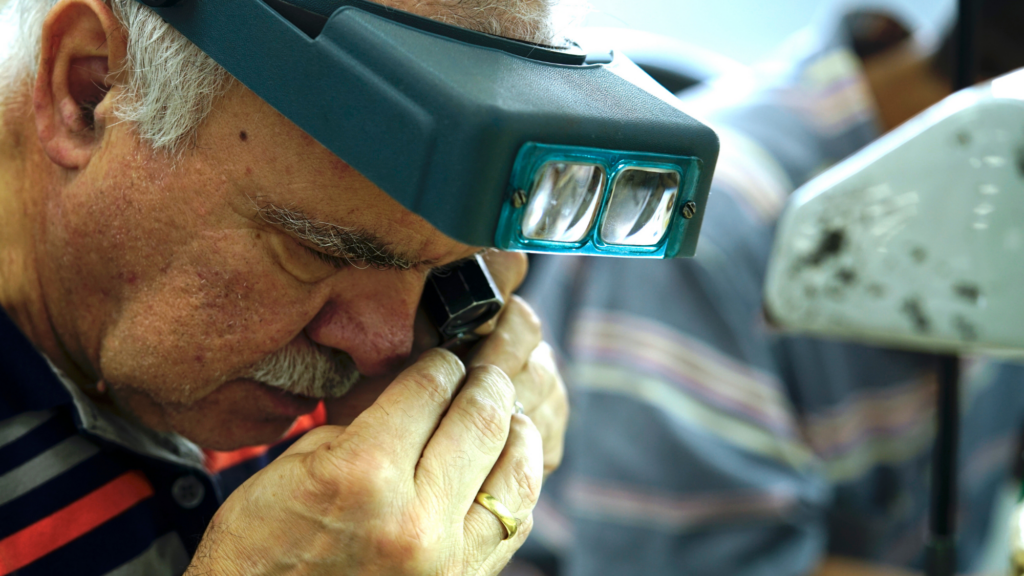 An appraiser conducts an appraisal to determine the value of a gem or piece of jewelry. Properties like shape, cut, color, measurements, weight, clarity, color, and symmetry all contribute to the overall quality of a gemstone. Anyone who wants to either resell or insure their jewelry will likely visit an appraiser to get a sense of its value and obtain an official document they can bring to an insurer or to a retail store.
An appraiser conducts an appraisal to determine the value of a gem or piece of jewelry. Properties like shape, cut, color, measurements, weight, clarity, color, and symmetry all contribute to the overall quality of a gemstone. Anyone who wants to either resell or insure their jewelry will likely visit an appraiser to get a sense of its value and obtain an official document they can bring to an insurer or to a retail store.
Bench Jeweler
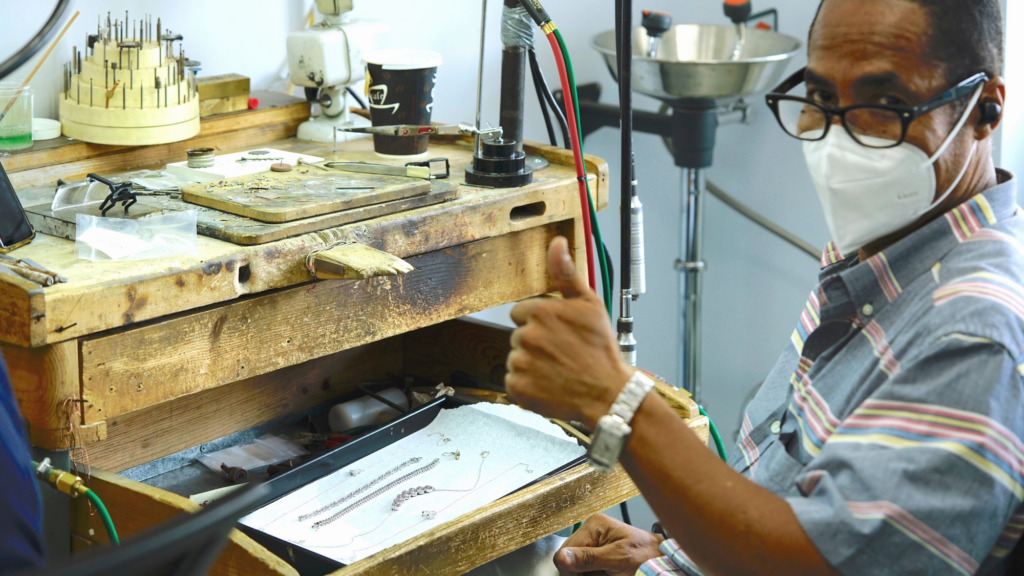 Bench jewelers are the skilled technicians that create and repair jewelry. They work with tools like soldering irons and polishing wheels to shape metals and set gemstones into jewelry. This job requires additional training and experience, but a gemologist’s in-depth knowledge of each gemstone’s unique properties and needs can go a long way on the jewelry bench.
Bench jewelers are the skilled technicians that create and repair jewelry. They work with tools like soldering irons and polishing wheels to shape metals and set gemstones into jewelry. This job requires additional training and experience, but a gemologist’s in-depth knowledge of each gemstone’s unique properties and needs can go a long way on the jewelry bench.
Retailer
 When jewelry is sold in stores, customers often want to know the origin of the gems available. Having a gemologist on site or training sales associates in gemology adds a layer of credibility; they can offer clients more detailed information about the gems on sale at the shop, and can advise the retailer about appropriate pricing based on each gem’s value.
When jewelry is sold in stores, customers often want to know the origin of the gems available. Having a gemologist on site or training sales associates in gemology adds a layer of credibility; they can offer clients more detailed information about the gems on sale at the shop, and can advise the retailer about appropriate pricing based on each gem’s value.
Manufacturer
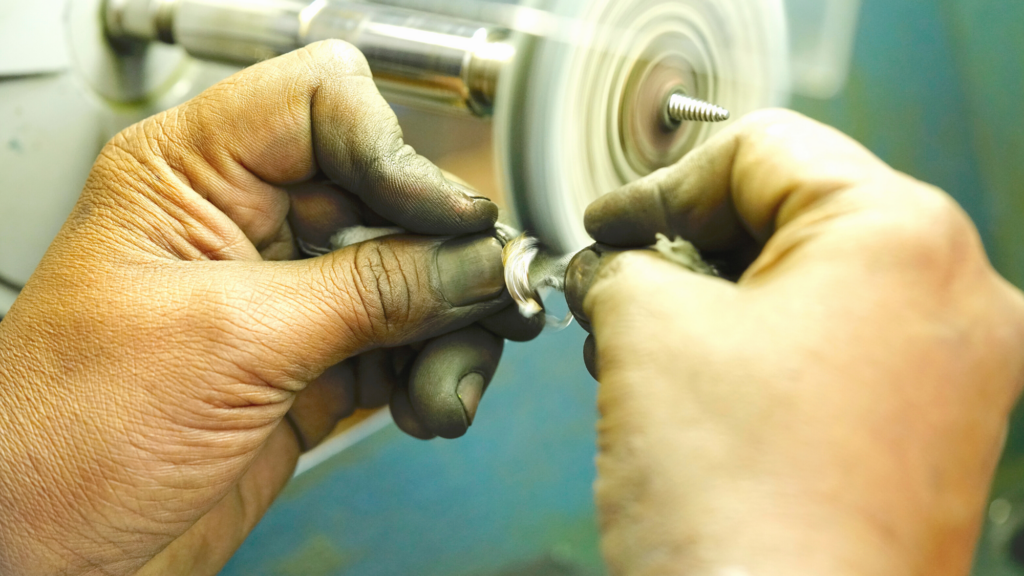 Jewelry manufacturing is a crucial part of the jewelry industry. Jewelry manufacturers bring designs to life and can create entire product lines for jewelry retail brands. Knowing the origin, value, and quality of the gemstones that feature in each piece of jewelry is an important part of the production process, so manufacturers often staff gemologists on their teams.
Jewelry manufacturing is a crucial part of the jewelry industry. Jewelry manufacturers bring designs to life and can create entire product lines for jewelry retail brands. Knowing the origin, value, and quality of the gemstones that feature in each piece of jewelry is an important part of the production process, so manufacturers often staff gemologists on their teams.
Wholesale Gem Seller
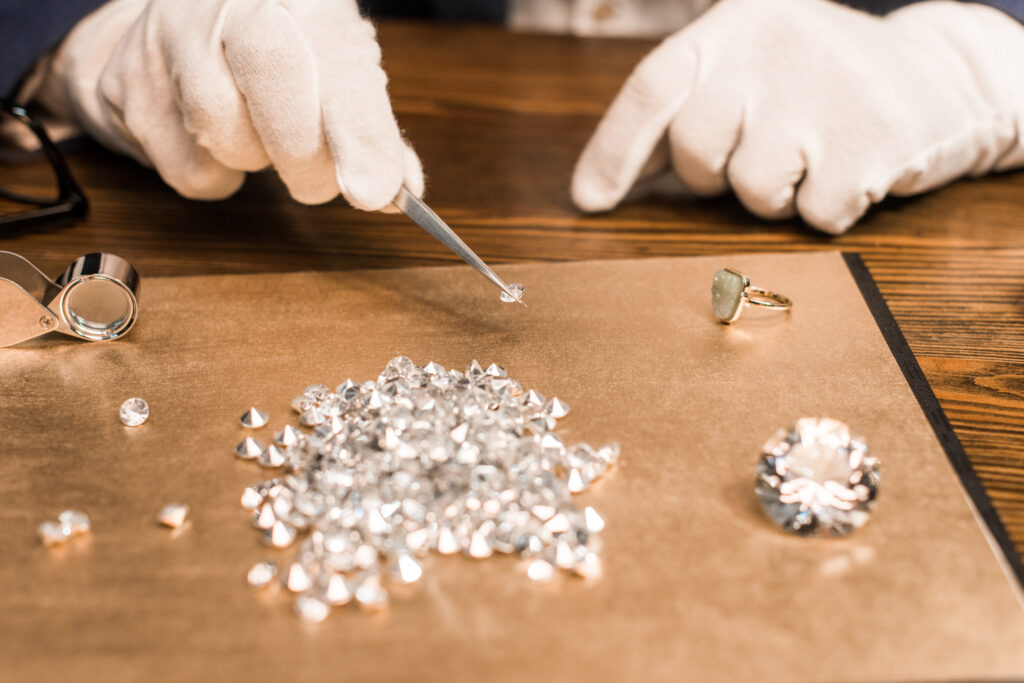 Manufacturers often purchase their gems wholesale from distributors that source materials. Gemologists who work on the wholesale side of the industry can determine the value of each gem and provide detailed information to both the wholesale company and the retailer or manufacturing customer. They often serve as a liaison between the retailer and whoever is sourcing the gemstones.
Manufacturers often purchase their gems wholesale from distributors that source materials. Gemologists who work on the wholesale side of the industry can determine the value of each gem and provide detailed information to both the wholesale company and the retailer or manufacturing customer. They often serve as a liaison between the retailer and whoever is sourcing the gemstones.
Laboratory and Research
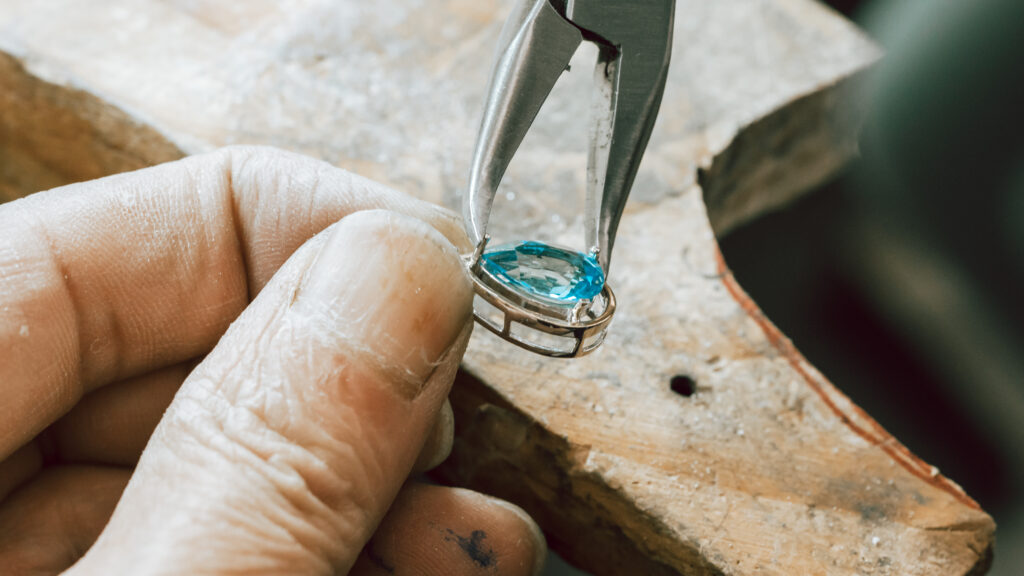 Lab-grown diamonds and other gems are becoming increasingly popular due to their affordable price and more sustainable nature. The labs where they are created are highly specialized and controlled environments, and gemologists are often on staff advising production and contributing to research.
Lab-grown diamonds and other gems are becoming increasingly popular due to their affordable price and more sustainable nature. The labs where they are created are highly specialized and controlled environments, and gemologists are often on staff advising production and contributing to research.
Auction House Jewelry Specialist
 Many auction houses have entire departments dedicated to fine jewelry. A resident gemologist can provide helpful information about precious gems and jewelry going up for auction and can identify the provenance and value of each item based on its unique features. This helps the auction house set an opening bid and anticipate what the final sale price might be.
Many auction houses have entire departments dedicated to fine jewelry. A resident gemologist can provide helpful information about precious gems and jewelry going up for auction and can identify the provenance and value of each item based on its unique features. This helps the auction house set an opening bid and anticipate what the final sale price might be.
The study of gemstones is a very valuable discipline in the jewelry industry; virtually all of the information we can learn about these beautiful stones is thanks to gemologists. To learn more about your own jewelry and gemstones, take a look at Quick Jewelry Repairs’ appraisal services. Our licensed gemologists will provide an official appraisal document and give you a comprehensive overview of your jewelry so you can be (almost) as informed as a professional gemologist.


